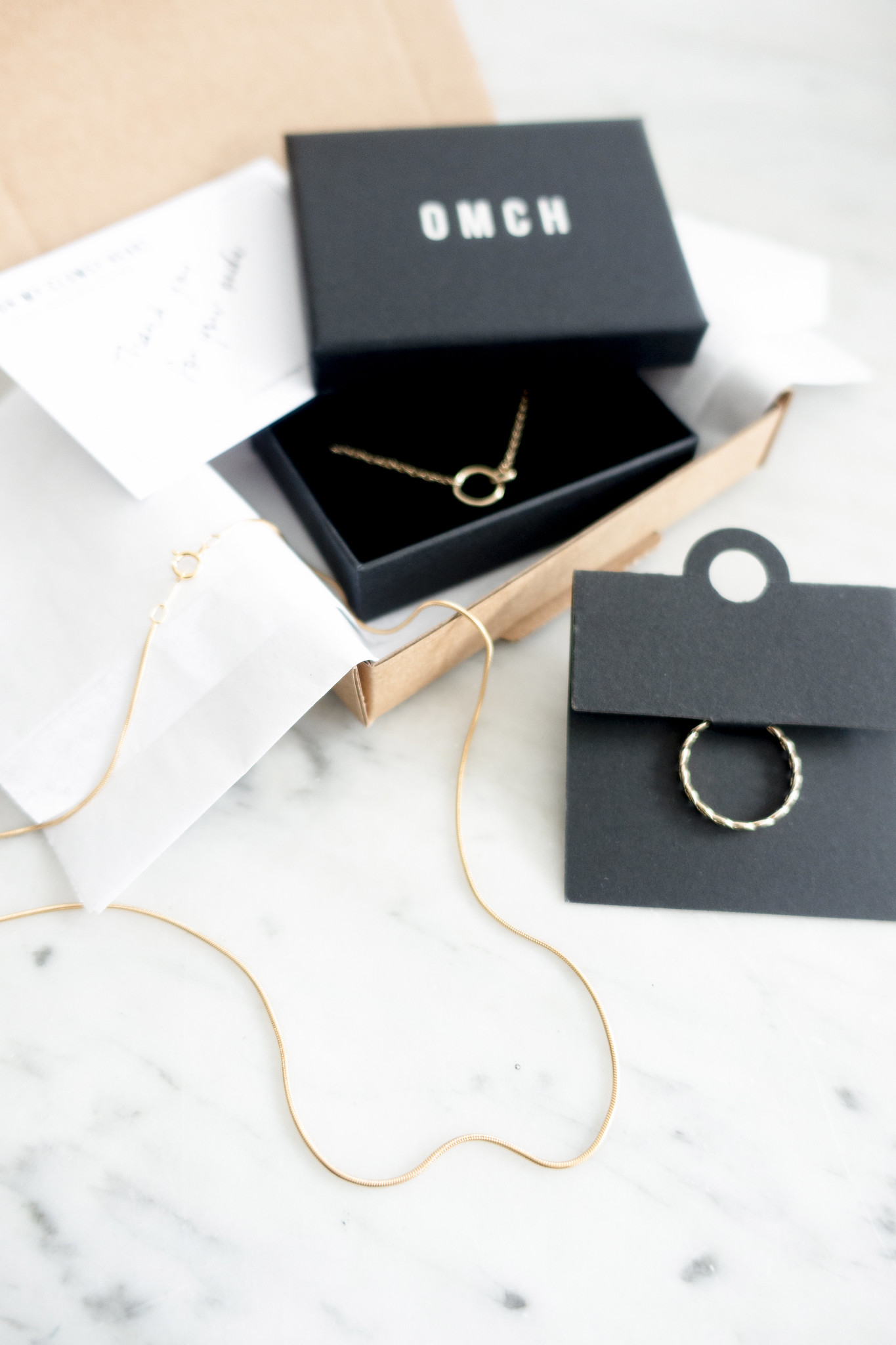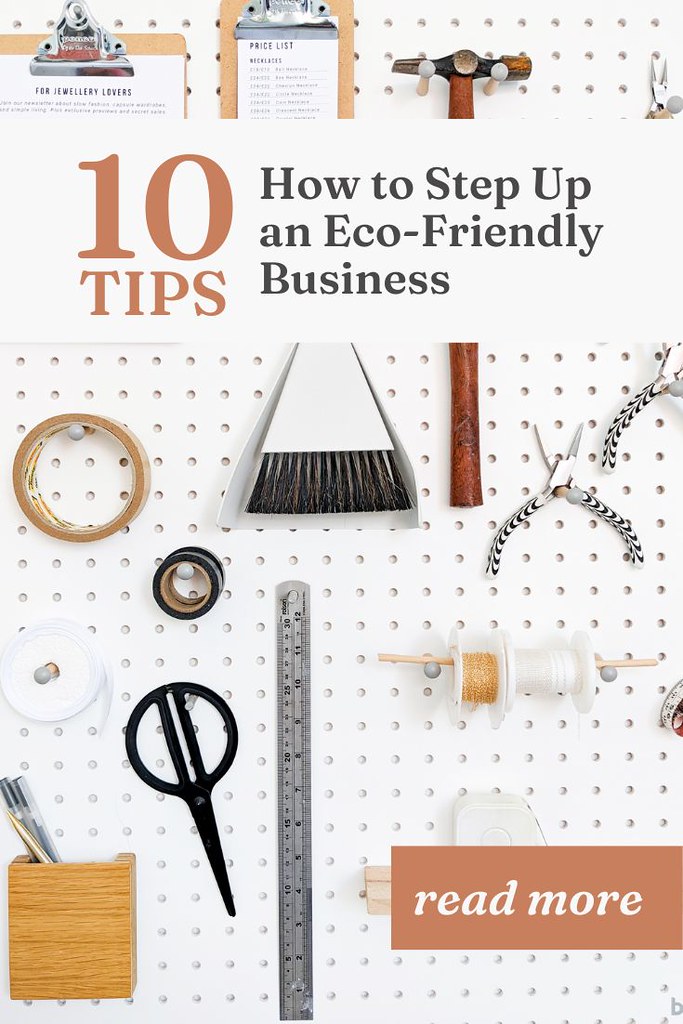
As people become more aware of their environmental impact, eco-friendly products have become a non-negotiable for many shoppers. People are actively seeking brands that align with their values, and products that are made without harming the environment, animals, or workers.
Sustainability is no longer a trend—it's become an integral part of running a business. By embracing eco-friendly practices, brands can reduce their environmental footprint and demonstrate their commitment to supporting a greener future.
Ever since starting my own jewellery brand, Oh My Clumsy Heart, I've prioritised eco-friendly practices. From recycled metals to plastic-free packaging to carbon neutral delivery; I focused on making eco-friendly jewellery that is affordable, made to last, and environmentally conscious.
With over 10 years experience writing about sustainable fashion, working with eco-friendly brands, and running a small business; I've learned a lot about what it takes to make an eco-conscious brand!
Whether you're an small business or an established company, here are ten valuable tips on how to set up an eco-friendly business that aligns with environmentally conscious customers looking for sustainable alternatives.
How can I make my business eco-friendly?
The first thing businesses need to do to become more eco-friendly is to know what their current carbon footprint is. This will help identify the areas where making changes will have the biggest impact.
By assessing current practices and identifying areas for improvement, it's possible for all businesses—big and small—to make significant steps in reducing their environmental footprint and becoming more eco-friendly.
Each business starts their journey from a different place so the steps taken to become more sustainable won't be the same for everyone. Keep reading to learn how to make a business more eco-friendly.

How to Set Up an Eco-Friendly Business
1. Invest in Education
Investing in education is essential for building an eco-friendly business. It provides the necessary knowledge and skills needed to align business practices with environmental goals.
Virtual College offer an extensive collection of over 350 courses that can teach you everything you need to know about running an eco-friendly business, from cyber security to carbon literacy.
2. Source Sustainable Materials
Without a transparent and traceable supply chain, it's impossible for a business to maintain ethical practices. By ensuring materials are sourced responsibly and products made using sustainable materials, businesses can significantly reduce their environmental impact.
All the metals I use to make my sustainable jewellery are sourced from Fairtrade licensed suppliers who provide fair wages and a safe work environment for their workers. This ensures a traceable supply chain and jewellery that has less impact on the environment.
3. Opt for Sustainable Packaging
Replace single-use plastics and other unsustainable packaging options in favour of eco-friendly alternatives. Plastic tape can be replaced with paper tape, bubblewrap with biodegradable packing peanuts, and padded envelopes with reusable cardboard boxes.
Opting for sustainable packaging can make a huge difference and even save your business money! I source recycled packaging from an eco-friendly supplier to deliver my jewellery. Everything from the jewellery boxes to the delivery packaging is made using recycled and recyclable materials—it helps reduce waste as well as deliver costs!
4. Reduce Waste
Wherever possible, try to reduce waste so that very little ends up in landfill. That might mean switching disposable coffee cups for reusables ones, buying essential supplies in bulk, or thrifting for office furniture.
To help reduce waste even further, implement a takeback programme where returns get resold and end of life products are dealt with. I sell samples, seconds alongside, and returns in a zero waste jewellery sale.
5. Go Paperless
Going paperless is one of the easiest steps businesses can make to become more eco-friendly. Reducing the use of paper by getting rid of printed receipts and invoices, and replacing disposable packaging with recyclable alternatives are simple yet effective switches.
Wherever possible, opt for cloud-based filing systems, digital invoices, and reusable office supplies. Avoid printed receipts and unnecessary promotional flyers, or at the very least opt for stationery made from recycled materials.

6. Offset Carbon Emissions
By offsetting carbon emissions, businesses can take a proactive approach to addressing climate change and take steps to mitigate their contribution to global warming.
You might be able to encourage customers to skip delivery altogether by offering collection. I provide several eco-friendly delivery options from my studio. All orders are sent using a carbon neutral service with a local collection service available at the studio.
7. Offer Fair Pricing
A huge part of being a sustainable business is offering fair pricing. This ensures eco-friendly products are made more affordable and therefore more accessible to a wider range of customers.
There are several ways a business can offer fair pricing for their eco-friendly products. I keep my jewellery prices as affordable as possible without compromising ethics and sustainability by being an online-only brand.
8. Implement a Recycling Scheme
Whether it's recycling packaging or dealing with broken products, it's important to implement a recycling scheme to prevent unnecessary waste going to landfill. An easy way to do this is to provide separate bins to handle recycling within the business.
If possible, offer a repair service for customers to fix broken items and a recycling programme to deal with end of life products. I offer a jewellery repair service to prevent any items being unnecessarily recycled or ending up in landfill.
9. Get Certified
Environmental certifications evaluate a business's sustainability claims, providing an independent assurance that a product meets specific standards. They are a valuable tool for customers who want to make better choices about the products they buy, helping them to avoid brands who are guilty of greenwashing.
Getting products certified costs money meaning a lot of small businesses aren't able to get their products independently assessed. An alternative option is to provide detailed information about the brand's sustainability commitments including the supply chain, materials and sourcing.
10. Promote Sustainability Efforts
People won't know about a business's environmental efforts unless they're told about them! Promoting eco-friendly initiatives is a great way of demonstrating a business's commitment to environmental issues, which hopefully inspires others to follow suit.
Whether it's a new eco-friendly product, service, or initiative, make sure to educate your customers all about them. Provide information via a newsletter or blog post, and offer incentives—like a refer a friend promotion—to make sustainable choices more easily accessible.
Pin This Post
